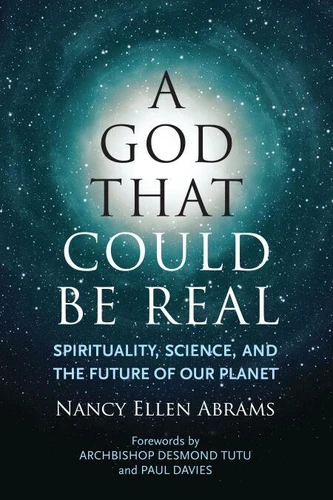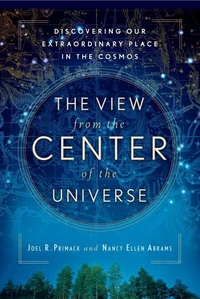A God That Could be Real. Spirituality, Science, and the Future of Our Planet
Par : , ,Formats :
Disponible dans votre compte client Decitre ou Furet du Nord dès validation de votre commande. Le format ePub protégé est :
- Compatible avec une lecture sur My Vivlio (smartphone, tablette, ordinateur)
- Compatible avec une lecture sur liseuses Vivlio
- Pour les liseuses autres que Vivlio, vous devez utiliser le logiciel Adobe Digital Edition. Non compatible avec la lecture sur les liseuses Kindle, Remarkable et Sony
- Non compatible avec un achat hors France métropolitaine
 , qui est-ce ?
, qui est-ce ?Notre partenaire de plateforme de lecture numérique où vous retrouverez l'ensemble de vos ebooks gratuitement
Pour en savoir plus sur nos ebooks, consultez notre aide en ligne ici
- Nombre de pages200
- FormatePub
- ISBN978-0-8070-7340-7
- EAN9780807073407
- Date de parution10/03/2015
- Protection num.Adobe DRM
- Taille1020 Ko
- Infos supplémentairesepub
- ÉditeurBeacon Press
Résumé
A paradigm-shifting blend of science, religion, and philosophy for the agnostic, spiritual-but-not-religious, and scientifically minded reader Many people are fed up with the way traditional religion alienates them. Too often it perpetuates conflict, vilifies science, and undermines reason. Nancy Abrams-a philosopher of science, lawyer, and lifelong atheist-is among these people, but she has also found freedom in imagining a higher power. In A God That Could Be Real, Abrams explores a radically new way of thinking about God.
She dismantles several common assumptions about God and shows why an omniscient, omnipotent God that created the universe and plans what happens is incompatible with science-but that this doesn't preclude a God that can comfort and empower us. Moving away from traditional arguments for God, Abrams finds something worthy of the name "God" in the new science of emergence: just as a complex ant hill emerges from the collective behavior of individually clueless ants, and just as the global economy emerges from the interactions of billions of individuals' choices, God, she argues, is an "emergent phenomenon" that arises from the staggering complexity of humanity's collective aspirations and is in dialogue with every individual.
This God did not create the universe-it created the meaning of the universe. It's not universal-it's planetary. It can't change the world, but it helps us change the world. A God that could be real, Abrams shows us, is what humanity needs to inspire us to collectively cooperate to protect our warming planet and create a long-term civilization.
She dismantles several common assumptions about God and shows why an omniscient, omnipotent God that created the universe and plans what happens is incompatible with science-but that this doesn't preclude a God that can comfort and empower us. Moving away from traditional arguments for God, Abrams finds something worthy of the name "God" in the new science of emergence: just as a complex ant hill emerges from the collective behavior of individually clueless ants, and just as the global economy emerges from the interactions of billions of individuals' choices, God, she argues, is an "emergent phenomenon" that arises from the staggering complexity of humanity's collective aspirations and is in dialogue with every individual.
This God did not create the universe-it created the meaning of the universe. It's not universal-it's planetary. It can't change the world, but it helps us change the world. A God that could be real, Abrams shows us, is what humanity needs to inspire us to collectively cooperate to protect our warming planet and create a long-term civilization.
A paradigm-shifting blend of science, religion, and philosophy for the agnostic, spiritual-but-not-religious, and scientifically minded reader Many people are fed up with the way traditional religion alienates them. Too often it perpetuates conflict, vilifies science, and undermines reason. Nancy Abrams-a philosopher of science, lawyer, and lifelong atheist-is among these people, but she has also found freedom in imagining a higher power. In A God That Could Be Real, Abrams explores a radically new way of thinking about God.
She dismantles several common assumptions about God and shows why an omniscient, omnipotent God that created the universe and plans what happens is incompatible with science-but that this doesn't preclude a God that can comfort and empower us. Moving away from traditional arguments for God, Abrams finds something worthy of the name "God" in the new science of emergence: just as a complex ant hill emerges from the collective behavior of individually clueless ants, and just as the global economy emerges from the interactions of billions of individuals' choices, God, she argues, is an "emergent phenomenon" that arises from the staggering complexity of humanity's collective aspirations and is in dialogue with every individual.
This God did not create the universe-it created the meaning of the universe. It's not universal-it's planetary. It can't change the world, but it helps us change the world. A God that could be real, Abrams shows us, is what humanity needs to inspire us to collectively cooperate to protect our warming planet and create a long-term civilization.
She dismantles several common assumptions about God and shows why an omniscient, omnipotent God that created the universe and plans what happens is incompatible with science-but that this doesn't preclude a God that can comfort and empower us. Moving away from traditional arguments for God, Abrams finds something worthy of the name "God" in the new science of emergence: just as a complex ant hill emerges from the collective behavior of individually clueless ants, and just as the global economy emerges from the interactions of billions of individuals' choices, God, she argues, is an "emergent phenomenon" that arises from the staggering complexity of humanity's collective aspirations and is in dialogue with every individual.
This God did not create the universe-it created the meaning of the universe. It's not universal-it's planetary. It can't change the world, but it helps us change the world. A God that could be real, Abrams shows us, is what humanity needs to inspire us to collectively cooperate to protect our warming planet and create a long-term civilization.




